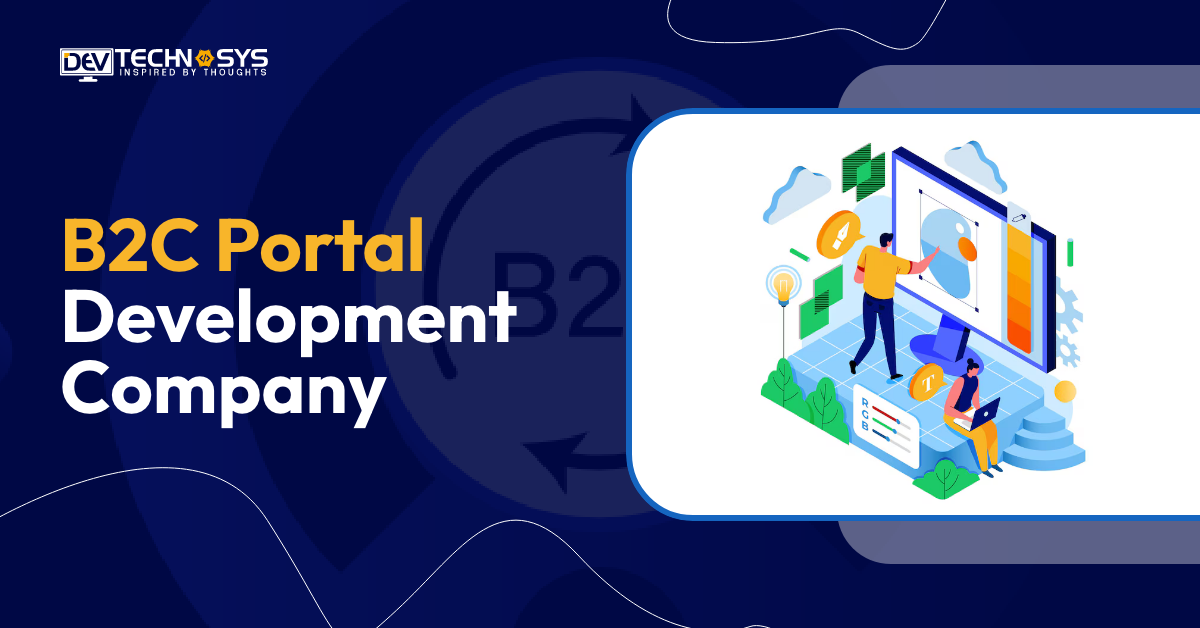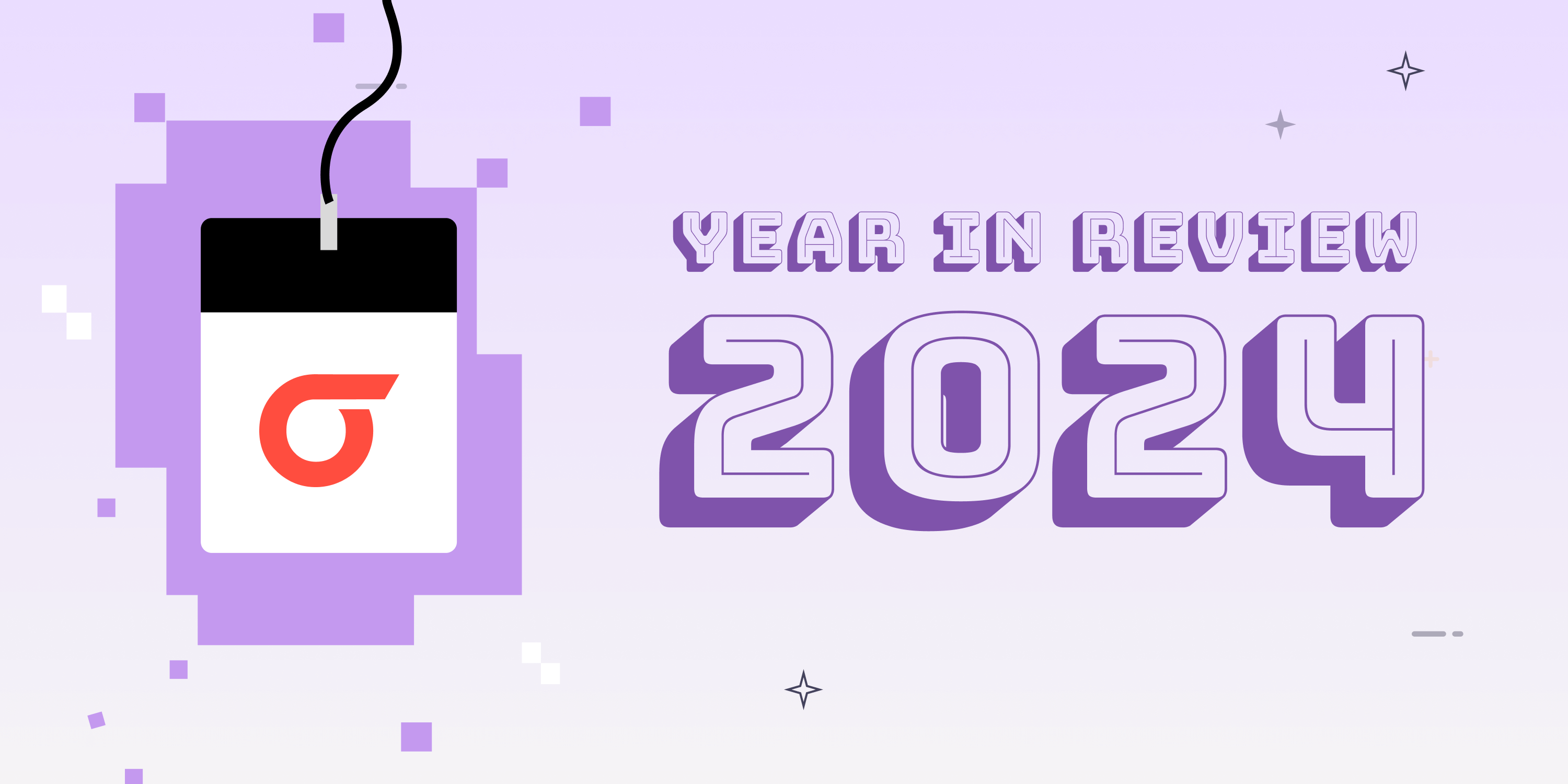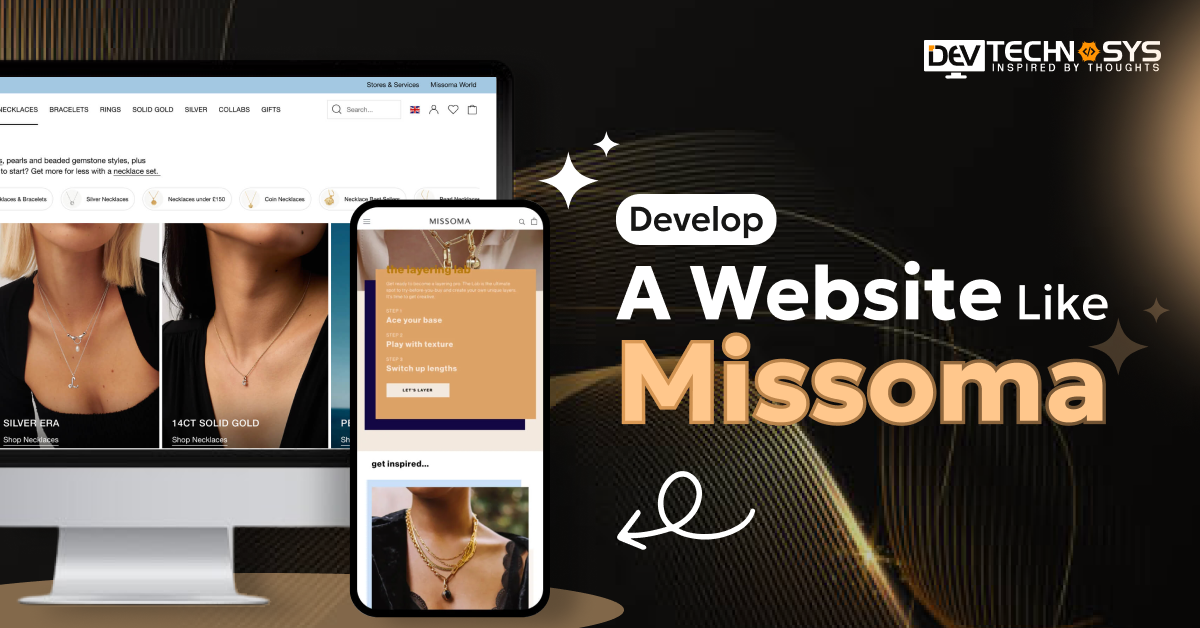90 / 100
Do you need a digital presence? Well, B2C portal development is the best way to help you create a strong online presence.
Online platforms have made people’s lives easier and more convenient. B2B (business-to-customer) is used by businesses to sell their products directly to consumers online. According to my research, from 2024 to 2030, the global business-to-consumer (B2C) e-commerce market is expected to expand at a compound annual growth rate (CAGR) of approximately 11.5%. In 2023, the market is projected to be worth approximately USD 5.8 trillion. Hence, it depicts room for business growth.
Businesses are in the open market for B2C portal development. However, if you want the same, choose the best one that meets your requirements.
This blog will provide everything you need to learn about business-to-customer development.
Quick Summary: Learn how to develop a B2C portal with this comprehensive blog. It will guide you through a more straightforward B2C portal development process, must-have features, cost involved, types, benefits, and tech stack of B2C portal. So, without a further second, let’s start.
What is The B2C Portal Development?
B2C stands for “business to customer.” It allows businesses to sell their products directly to customers and maximize growth. With B2C, businesses can reach many customers with less marketing effort.
The portal offers features like product listing, account management, and community forums. With business-to-customer development, businesses can reach a big audience, strengthen operations, and improve customer service.
So, if you are also looking to build a B2C portal for your business, hiring a web development company would be better. With their experience and expertise, you can attain your business goal associated with B2C marketplace.
5 Incredible Benefits of Developing The B2C Portal
Are you wondering how B2C portal development can benefit your business? Here are five complete reasons why entrepreneurs must invest in developing a B2C portal:
- Improved Brand Visibility
- Streamlined operations and Reduced Cost
- Enhanced Customer Experience
- Valuable Customer Insights
- Gain Access to Quality Leads
1. Improved Brand Visibility
With a B2C portal, businesses can reach customers beyond geographical boundaries and cater to the requirements of users across the world. It helps businesses increase sales and rescue seasonality by diversifying the customer base. So, if you are looking for the same, hire dedicated developers to build a profitable B2C marketplace development.
2. Streamlined Operations and Reduced Cost
Businesses use a B2C portal to automate many tasks that their customer support teams handle. Additionally, the portal helps customers find answers to FAQs, track their orders, and manage accounts independently. Hence, it already works on workers, enabling them to focus on strategic activities. This translates to cost savings in the long run.
3. Enhanced Customer Experience
Job portal app development solutions empower entrepreneurs to create a user-friendly platform prioritizing customer experience. Features like personalized recommendations, self-service options, and product catalogs give customers control of their journey and encourage repeat business.
4. Valuable Customer Insights
With a B2C portal, businesses can collect and store customer data. This data tracks users’ browsing behavior, buying history, and feedback, enabling businesses to gain valuable insights into customers’ buying patterns and behavior. This data can be leveraged to personalize specific product offerings and improve customer satisfaction.
5. Gain Access to Quality Leads
Apart from all the above-mentioned benefits, web development services facilitate various business opportunities. While portals allow businesses to capture a large audience, they always enable businesses to segment, target, and reach a specific audience, giving businesses access to more qualified buyers.
Pramod (Project Manager)
As a B2C portal developer, I have had the opportunity to work on different projects focused on connecting businesses directly to customers. The demand for B2C portals has been steadily increasing as businesses realize the significance of developing a seamless online experience for their customers. These portals act as a gateway for customers to access products, services, information, and support in one central platform. Overall, B2C development is critical in helping businesses meet changing customer needs in the digital age. Hence, if you find it difficult to create a B2C portal, get ready to learn one of the easiest B2C portal app development processes. I am going to share my experience and learning about B2C portal development in this blog.
7 Key Steps to Develop a B2C Portal
In the current digital era, b2c portals are becoming a significant tool for businesses to help connect with their target customers and offer a seamless online experience. However, B2C portal development services is not easy, requiring years of experience and appropriate skills.
That’s why you are advised to hire a web portal development company. Here is a breakdown of the critical steps involved:
- Conduct Market Research
- Choose the Best Tech Stack
- Craft an Intuitive UI/UX
- Develop the App
- Testing and Quality Assurance
- Launching and Marketing
- Provide Continuous Support and Upgrades
1. Conduct Market Research
Before diving into B2C development, figure out your target audience, their needs, and point points. You should also study competitors’ offerings to offer users the best services. Hence, this research will help you define the features and functionalities your app needs to stand out and cater to a targeted customer base.
2. Choose the Best Tech Stack
The tech stack is the technology used in b2c custom web portal development. It includes a programming language, database, and framework that bring your vision to life.
When choosing a tech stack, consider factors like ease of maintenance, security, and scalability. If you find it difficult to choose the best tech stack, get assistance from a Job portal app development company to select the most suited tech stack.
3. Craft an Intuitive UI/UX
Design plays a critical role in building an engaging user experience. With a great design, you can make visitors stop your website. If you want to be successful with your application design and deliver a seamless user experience for your portal, keep your design as clear and simple as possible. If you cannot design your portal, hire mobile app developers who can help you reach your app design goal.
4. Develop the App
Now, it’s time to develop the BC portal. As you know, business-to-customer development is not an easy process, so it would be better for you to hire a b2c portal development company. With years of experience building apps with advanced technologies, professionals will build a B2C portal that will work on both Android and iOS devices and a progressing portal.
5. Testing and Quality Assurance
It’s another thing that you must take care of. After a successful business-to-customer portal development, ensure your portal is working perfectly. For this, you have to conduct various tests.
Here, the mobile app development company conducts tests such as user acceptance testing, unit testing, functional testing, and so on to ensure your portal is error-free and ready for deployment.
6. Launching and Marketing
With a tested portal, it’s time to go live! Furthermore, build an effective marketing strategy so that more customers know about your offering. You can use social media channels, influencer marketing, and email campaigns to create buzz and gain users’ attention.
7. Provide Continuous Support and Upgrades
After deployment, the work does not stop. Continuously monitor the performance of your portal, collect user feedback, and resolve any issue immediately. If required, you ask an on demand app development company for bug fixes, adding new features, and security patches. It will help to keep your B2C portal user-friendly and competitive.
7 Business-to-Consumer Portal in Different Industries
In the current digital era, B2C interaction happens in every industry. Here is a list where you find the B2C portal most beneficial:
- Banking Industry
- Healthcare Industry
- Education Industry
- E-commerce Industry
- HR Management Industry
- Auction Industry
- Food and Restaurant Industry
1. Banking Industry
B2C banking has witnessed a digital revolution. Businesses in the industry offer mobile applications like Chase Mobile for easy account management, convenient loan applications, and online bill pay. Additionally, with banking app development, personalized financial advice and budgeting tools are also becoming common.
2. Healthcare Industry
Healthcare application development is focused on patient convenience. The B2C portal or apps like My Chart offer online appointments, virtual consultations with healthcare providers, and secure access to medical records, has transformed the experience.
3. Education Industry
Online learning platforms like Coursera have increased the need for B2C education. Nowadays, universities offer online courses and degrees, while Massive Open Online Courses provide reasonable access to quality education. E-learning app development makes the learning experience more engaging.
4. E-commerce Industry
Online B2C platforms like Amazon offer a wide selection of products, secure payment gateways, convenient search features, and fast delivery options. Additionally, ecommerce web development services such as social media marketing and personalized recommendations enhanced the shopping experience.
5. HR Management Industry
Now, job seekers can easily browse and apply for positions directly on companies’ websites. Additionally, B2C HRM uses social media platforms like LinkedIn to showcase organizational culture and attract skilled candidates.
6. Auction Industry
In the industry, online auction software eBAY deliver products directly to customers. Customers can buy products ranging from rare to luxury goods. Such platforms leverage online accessibility that allows for global participation.
7. Food and Restaurant Industry
In the food and restaurant industry, B2C interactions include direct online orders. Food delivery app development solutions prioritize convenience and offer customers easy access to different cuisines and dining experiences. Apps like DoorDash include features like a loyalty program and customer reviews.
5 Different Types of B2C Models
The B2C model includes a variety of approaches for selling products and services directly to customers. As a result, the models have become significant in shaping the digital marketplace. If you are curious to know what are the key B2C models, consider the following models:
- Direct Sellers
- Fee-based B2C
- Online Intermediaries
- Community-Based
- Advertising based B2C
1. Direct Sellers
It’s a common B2C model where businesses sell their products in physical locations and online stores. This model enables businesses to completely control brand image and customer experience.
2. Fee-based B2Con these all sites
Users pay a fee to access content. Businesses charge subscription fees for access to their content or services. This B2C model fosters customer loyalty and also provides a predictable income stream.
3. Online Intermediaries
It acts as a middleman that connects sellers and buyers. Marketplaces like Etsy or eBay facilitate transactions and receive commissions on every sale. This model offers convenience for customers with a range of products but reduces controls for individual sellers.
4. Community-Based
This B2C model is known to create a space for like-minded customers to connect. This category of B2C model includes online forums or social media platforms. Businesses can leverage these communities for targeted advertising.
5. Advertising based B2C
With this B2C model, online sites use different content, such as blogs, articles, websites, and more, to attract and bring more visitors. This model is becoming significant for businesses procuring advertising space on platforms with a large traffic volume.
10 Must-have Features of a B2C Portal Development
When dealing with B2C businesses, traders look for some critical features. Hence, if you are looking for the on demand app development solutions that can boost your business, ensure that your portal has all the required features. If you are unaware of the significant B2C features, look at the table below:
| Seamless Navigation | Your B2C portal should allow customers to find what they need effortlessly. It provides a seamless user experience. |
| User Account and Profiles | Lets users create accounts for faster checkouts, personal recommendations, and wish lists. |
| Order Tracking Gateway | Develop a B2C portal that allows customers to track orders, check order history, and manage exchanges or returns. |
| Secure Payment Gateway | Make a B2C portal that provides a trustworthy and secure payment experience with different payment options, such as debit cards, credit cards, and online wallets with effective payment gateway integrations. |
| Product Presentation | Ensure detailed descriptions, high-quality product images, and a user-friendly interface showcasing features and benefits. |
| Content Management System | With the CMS, you can update product information, promotions, and other content effectively. |
|
Security and Compliance |
Implement robust security measures in your B2C portal to project customer data and ensure compliance with data privacy regulations. |
| Customer Support | Ensure your portal facilitates multiple channels for customer support, such as an email ticketing system, live chat, and many more. |
| Reviews and Ratings | This feature lets customers review product ratings, builds trust, and provides valuable insights for further improvements. |
| Multilingual Support | Develop a patient portal app that captures the global audience by offering multilingual support, expanding your reach, and catering to a diverse customer base. |
Cost to Develop Business-to-Consumer Portal
Are you wondering what B2C portal development costs? Well, there is no straight answer to this question. This is because a range of factors, such as portal design, features, development team, and many more, significantly influence the cost of business-to-customer portal development.
On average, the cost of B2C portal development is $8500 to $3000, depending on the level of your portal’s complexity, as mentioned below:
Business-to-customer Portal Development |
Estimated Cost |
Time Frame |
|
Simple Business-to-customer Portal Development |
$8500 – $14000 | 3 to 6 Months |
|
Medium-Complex Business-to-customer Portal Development |
$14000 – $22500 | 6 to 9 Months |
|
High-Complex Business-to-customer Portal Development |
$30000+ | 10+ Months |
Apart from the B2C portal development cost, consider the website maintenance cost, which ranges from 15 to 20% of the overall development cost.
B2C Portal Development Services
Nowadays, web portal development solutions have become significant for businesses aiming to provide a seamless online experience. Such portals not only enhance customer engagement but also streamline transactions. If you want to know about different B2C portal development services, look here:
- SEO
- Mobile Apps
- Digital Marketing
1. SEO
SEO stands for search engine optimization, critical in making these portals visible to customers. Businesses can enhance their portal’s search engine ranking with effective SEO strategies, including content marketing, keyword optimization, and link building. This drives organic traffic while increasing conversion rates.
2. Mobile Apps
Mobile apps facilitate simple methods for customers to communicate with businesses on the go. Responsive mobile apps may increase user engagement and sales in light of the widespread usage of smartphones. The apps should be feature-rich, user-friendly, and seamlessly integrated with the portal to provide a consistent experience on all the platforms.
3. Digital Marketing
Digital marketing includes a range of the strategies aiming to promote B2C portals and mobile apps. With social media campaigns, email marketing, and social media campaigns, businesses can reach a big audience and convert visitors into loyal customers. Hence, all these elements ensure a comprehensive approach to creating a strong online presence.
5 Business Objectives With B2C Portal Development
Developing B2C portals facilitates a customer-centric approach, increasing customer engagement. Here is a list showing how b2b and b2c portal development can fulfill the purpose:
- Workflow Automation
- Security Benefit
- Central Access
- Multi-channel Capabilities
- Active user Interaction
1. Workflow Automation
It optimizes internal processes that minimize errors, reduce manual tasks, and improve efficiency. Hence, this automation accelerates order processing, customer support, and inventory management, leading to cost savings while ensuring enhanced service delivery.
2. Security Benefit
In this, businesses implement robust security measures to safeguard transactions, sensitive customer data, and interactions that build trust and confidence among potential users.
3. Central Access
It ensures that the customer navigates the portal, accessing products and information seamlessly. As per the ecommerce web development services provider, this fosters convenience and ensures repeat visitors, which enhances customer satisfaction and loyalty.
4. Multi-channel Capabilities
Multi-channel capabilities enable entrepreneurs to engage with customers across different touch points, including social media platforms, mobile devices, and the web. Hence, this ensures a consistent brand and messaging that maximizes reach and engagement.
5. Active user Interaction
It fosters an engaging user experience. Features like social media integration, personalized recommendations, and interactive content encourage user participation. This drives increased traffic and fosters strong customer relationships.
Tech Stack For B2C Portal Development
Component |
Technologies |
| Backend | Node.js, Java (Spring Boot) Python (Django/Flask), |
| Frontend | React Native, Flutter, Swift, Kotlin |
| Database | SQLite, PostgreSQL,MySQL, MongoDB, Firebase |
| API Integration | GraphQL, RESTful APIs, SOAP |
| Authentication | OAuth, JWT |
| Analytics | Google Analytics, Firebase Analytics |
| Version Control | Git, GitHub, Bitbucket |
| Push Notifications | Apple Push Notification Service, Firebase Cloud Messaging |
| Deployment | Apple App Store, Google Play Store, TestFlight, Firebase App Distribution |
Wrapping Up!
The B2C portal is the future for all industries. By getting involved with digital business, industries can attract more customers and increase sales. This blog has demonstrated how a B2C portal benefits businesses in terms of sales, revenue, customers, and so on. As a result, most businesses in different industries have started to invest in B2C portal development.
So, if you are also convinced by this and looking to develop your own B2C portal, just go for it. However, you may find it quite difficult to develop it yourself. Hence, you must consult top web portal development companies.
Dev Technosys provides customer portal development. We at Dev Technosys help with b2c custom portal development, depending on specific industries and unique requirements.
Frequently Asked Questions
1. How Much Does it Cost to Develop a Web Portal?
The cost to develop a web portal is $8000 to $3000. However, the cost can be different if you have unique requirements regarding your project.
2. How Long Does It Take to Develop a B2C Portal?
The timeline for developing a B2C portal can vary based on the project’s requirements and complexity. However, on average, B2C portal development takes 3 to 11 months.
3. How Can A B2C Portal Improve Customer Engagement?
B2C portals improve the customer engagement in the following ways:
- Customized offers and promotions
- Engaging videos and tutorials
- Customer feedback and ratings
- Real-time customer assistance
- Regular updates and notification
4. What Technologies Are Commonly Used In B2C Portal Development?
Here is a list of technologies used in B2C portal development:
- Web development framework
- Backend technologies
- Payment gateways
- Analytics tools
- Cloud services




















Discussion about this post